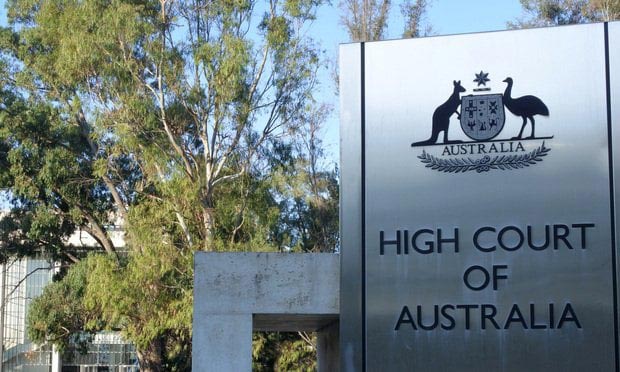When Shakespeare’s Prince Hamlet contemplates whether death and suicide would be preferable to suffering the travails of life, he ponders the alternatives commencing with his rhetorical question, “To be, or not to be: that is the question…”.
In terms of disputants pondering litigation versus arbitration, such a question can be just as vexing. Thinking on the rise and rise of arbitration in Australia, particularly since the High Court of Australia handed down its decision in the Rinehart case some 4 years ago[1], it is timely to consider whether Rinehart’s continuing impact today, has made the decision to adopt arbitration over litigation any easier.
Background to Rinehart case
The High Court case was borne out of the high-profile family “war” involving Gina Rinehart as trustee of the HFMF Trust (Trust), and the beneficiaries of the Trust, Ms Rinehart’s children (Applicants).
Ms Rinehart and the Applicants entered into a number of settlement deeds between September 2003 and November 2010 regarding public threats of litigation by one of the Applicants. The settlement deeds contained dispute resolution clauses providing that any dispute ‘under this deed’ and ‘any dispute hereunder’ be referred to arbitration.
The Applicants commenced Federal Court proceedings against Ms Rinehart and others (Rinehart Respondents) for alleged breach of equitable and contractual obligations that she owed as trustee of the Trust. The Applicants claimed that the settlement deeds were not valid because they executed the deeds under the undue influence of their mother and wanted the matter to be dealt with by the courts.
The Rinehart Respondents applied for the proceeding against them to be stayed and for the claims to be referred to arbitration pursuant to section 8(1) of the Commercial Arbitration Act 2010 (NSW) (NSW Act).
Separately, the Applicants commenced proceedings against several companies controlled by Ms Rinehart which had received commercial assets (tenements) from the Trust (Companies). The Companies applied to have the claims against them referred to arbitration on the basis that they were parties claiming ‘through or under’ the Rinehart Respondents and were therefore parties within the meaning of section 2(1) of the NSW Act.
Scope of arbitration clause
At first instance the primary judge held that disputes as to the validity of a deed are not disputes ‘under the deed’ because disputes ‘under’ a deed depend on the existence of the deed itself. The phrase was given a narrower construction than ‘arising out of’ or ‘in connection with’.
The Full Court of the Federal Court of Australia disagreed and stayed the proceedings on the basis that ‘under this deed’ should be given a liberal interpretation unless the context requires otherwise.
The High Court agreed with the Full Court and decided that the validity of the deeds fell within the scope of the arbitration clauses.
The deeds were intended to address the risk of commercial damage to the Rinehart Respondents due to the threats of litigation made by one of the Applicants and the risk of disclosure of confidential information. In this context, it was important that all disputes relating to the deeds – including as to their validity – be confidential. The High Court held that the parties could not have understood that any challenge to the efficacy of the deed was to be determined in the public domain i.e. litigated.
Companies’ application – through or under a party
The majority of the High Court allowed the Companies’ application and ordered that the proceeding be stayed under section 8(1) of the NSW Act.
The High Court held that the Companies were persons claiming through or under the Respondents and therefore were parties to the arbitration agreement for the purposes of the NSW Act on the following grounds:
- As the Companies were assignees of mining tenements under the deed, there was no good reason why the Applicants’ claims against the Companies should not be determined in the same way as it would be determined between the Applicants and the Rinehart Respondents (as the assignor of the mining tenements under the deeds);
- Excluding the Companies from the scope of the arbitration agreement would give the arbitration agreement an uncertain operation and would potentially lead to duplication of proceedings. For this reason, the Court held that it would frustrate the evident purpose of the statutory definition of a “party” in the NSW Act; and
- The Court also held that rights of the respondents under the deed were an “essential element” of the Companies’ defence, which vested in and was exercisable by the parties to the Deed.
Rinehart’s legacy
In summary, Rinehart is authority for two game-changing principles:
- The scope of arbitration clauses that refer disputes ‘under’ a deed or agreement can be broad enough to capture disputes about the validity of the agreement (not just substantive claims); and
- If a claim or defence of a third party has an essential element that overlaps legally or factually with the claimant’s claim, a third party can be joined to the arbitration proceedings under the NSW Act.
Rinehart is the only decision of its kind in the world and distinguishes us from other international jurisdictions. The decision was and is controversial because it effectively extinguishes the doctrine of privity. Although the majority did not consider it appropriate to contemplate the issue of privity, Edelman J, dissenting, noted that the definition of party in the NSW Act is not an exception to the ordinary rules of privity in contract. Despite the majority seeking to limit the scope of its decision to the precise facts before it, there remains the potential for it to be applied so as to join third parties to arbitration without their consent.
For now, at least, Rinehart remains good law, maintaining Australia’s generally pro-arbitration legal environment.
Despite the criticism, Rinehart has instigated institutional change in arbitration in Australia. In 2021, the Australian Centre for International Commercial Arbitration (ACICA) updated its arbitration rules to allow for the joinder of parties and consolidation of arbitral proceedings where there are common questions of law or fact, and the claims stem from the same or similar transactions.[2] Further, parties may commence a single arbitration for claims involving multiple contracts that are sufficiently connected.[3]
Published in November 2022, ACICA’s Report “Reflections” cited statistics from the Australian Arbitration Report of 2020 that between 2016 and 2019, there were 223 arbitrations connected to Australia with aggregated amounts in dispute that exceeded AU$35 billion. Further, 60% of Australian solicitors and in-house counsel included or recommended the inclusion of arbitration clauses in international contracts worth more than AUD $5 million.[4] Notwithstanding the work that ACICA has done over the past decade to raise the profile of arbitration in this country, Australia is yet to gain popularity as a seat of arbitration for disputes with a connection to the Asia-Pacific region. 75% of survey participants indicated that Singapore was a preferable seat for arbitration.[5]
These statistics are based on empirical data collated at the time the High Court was about to decide Rinehart, and before ACICA updated its arbitration rules. We expect that this unique pro-arbitration decision may sway any future statistics in favour of Australia.
Rinehart’s impact on construction contracts
In four short years, Rinehart has already had a significant impact on arbitration in Australia, particularly in the construction industry.
The decision was applied by the Queensland Supreme Court in Bulkbuild Pty Ltd v Fortuna Well Pty Ltd (Bulkbuild).[6] In this case, the contractor brought claims against the principal for payment of works performed and the superintendent for how it assessed the claims (negligence). The contract between the contractor and principal contained an arbitration clause. The superintendent was not party to the contract in question. The contractor argued that the dispute must be litigated because it would be inconvenient for an arbitration against the principal to run concurrently with litigation against the superintendent on similar issues. The Court decided to stay the litigation and allow the superintendent to join the arbitral proceeding. Because the contractor was still claiming ‘through and under’ the principal, the Court held that the claims overlapped.
Pre-Rinehart, this decision would have been very different. The fact that there is potential inconvenience in having disputes to which an arbitration agreement applies resolved in arbitration, while related disputes are required to be resolved in Court, is not of itself sufficient to undermine the application and enforceability of an arbitration agreement. The Bulkbuild case reinforces the role of the Courts in preserving the enforceability of arbitration agreements by declining to exercise jurisdiction over disputes referred to arbitration except in limited circumstances prescribed by the NSW Act.
The effect of Rinehart is that, under similar circumstances, industry participants will not be faced with parallel litigation and arbitration proceedings that might reach different determinations on the same issue.
What’s next?
Time will tell whether Rinehart stays the course in the long-term and survives further judicial consideration. It will be interesting to see whether Rinehart has a positive impact on contract disputes, particularly in the construction industry.
For contracting parties considering litigation versus arbitration as a dispute resolution, Rinehart has warranted additional consideration of the pros and cons. To be, or not to be?
GRT Lawyers has specialised lawyers in both the arbitration and construction areas of law. If you would like to discuss the use of arbitration and/or a construction dispute please contact Ashley Hill or Kathryn Te’o.
[1] Rinehart & Anor v Hancock Prospecting Pty Ltd & Ors [2019] HCA 13; 267 CLR 514.
[2] ACICA Rules 2021, Articles 16 and 17.
[3] Ibid, Article 18.
[4] ACICA-FTI-Consulting-2020-Australian-Arbitration-Report-9-March-2021.pdf.
[5] Ibid.
[6] [2019] QSC 173.
This article was written by GRT Lawyers, Kathryn Te’o (Special Counsel) and Elizabeth Dowrie (Associate)
Glenn Vassallo (Managing Director), Scott Standen (Director) and Ashley Hill (Director) can assist you with any queries in relation to your corporate legal requirements.






